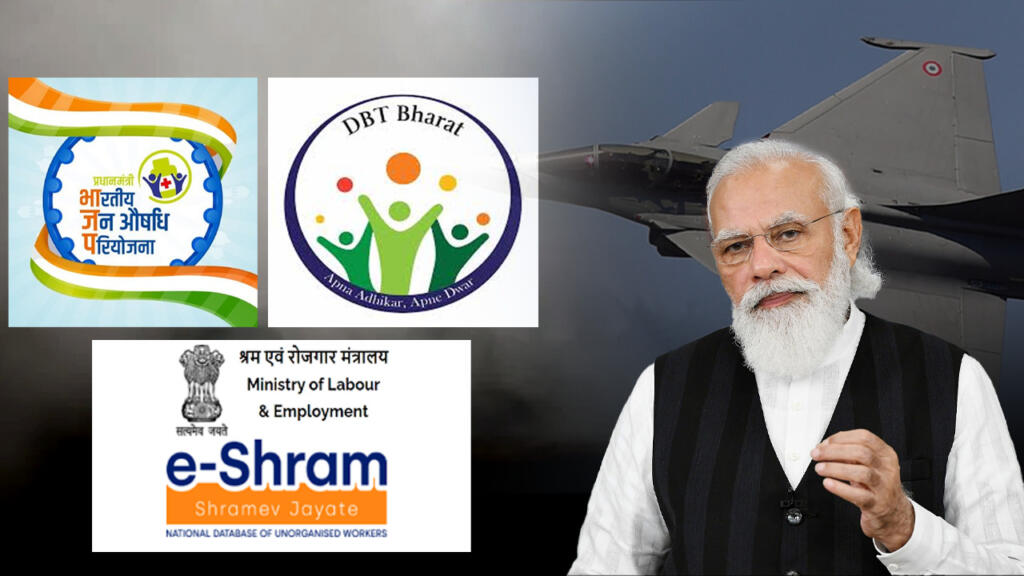For the last 6-7 years, the Modi government has taken some proactive steps aimed at weeding out corruption from our system.
Defence
The companies exporting defence products to India had to go through an extremely huge red tape which could take them years to get a contract. Thus, to get their job done at the earliest, they used to hire an agent in India close to the ministry. These agents slowly captured the entire process. By 2010, their involvement led to an exponential rise in the original cost.
When Manohar Parrikar became Indian defence minister in 2014, he vowed to weed out the middlemen. Recognising the significance of agents in defence procurements, the government allowed the companies to hire agents but imposed some strict conditions on them.
- The companies now have to submit the details of any person, party, and firm aiding them in India. The details will involve the full extent of responsibilities handed to the said party.
- The companies are now required to make a fixed contract, involving fixed payment to agents. Earlier, it was based on the cost of the deal, due to which agents used to inflate the pricing mechanism involved in the deal.
- If any law enforcement agency demands, the companies are required to produce all the necessary documents for inspection. Based on the inspection, the government can order to remove the agent.
- Besides all this, the government is emphasizing on Make-in-India products for defence. Indigenous defence manufacturing will involve very few middlemen in the process.
Farm and farm’s produce
More than 90 per cent of our farmers come from a poor background with almost zero access to formal education. Due to this, they face problems in getting the benefits from various schemes launched by the government. This leads to the involvement of agents. They provide quick funds to farmers and help them to grade, weigh, pack and sell harvests to buyers. But these facilities come at an extremely high cost than normal.
With the implementation of farm laws, the government has simply removed middlemen from the buying and selling of crops. In the words of economic analyst, Pranjal Sharma, “if farmers sell directly to buyers, the intermediaries will lose all relevance and earnings. By removing the intermediary, farmers can earn more while consumers can pay less”.
Moreover, the government has formed a Ministry of Cooperative to remove middlemen from other areas of the farmers’ life.
Read more: Amit Shah is empowering cooperatives to weed out bureaucratic corruption from the Farm sector
Pharmaceuticals
While the involvement of agents doubled, and at times, tripled the price of products in the defence and agriculture sector, the pharmaceuticals saw worse. A medicine that cost Rs 2 to manufacture ends up costing Rs 100-120 to a consumer. Besides that, skyrocketing hospitalisation costs had exponentially increased the troubles for a normal patient.
Pradhan Mantri Bhartiya Janaushadhi Pariyojana has made sure that medicines are affordable to the common man. More than 7,500 Jan Aushadhi Kendras have been opened up for common people. Until 2019, the initiative is said to have saved more than Rs 1,000 crores for the common man.
Similarly, Ayushman Bharat National Health Protection Scheme, aimed at protecting more than 10 crore poor Indian families has been able to drastically reduce hospitalisation and billing costs. Within two years of its launch, it has saved a total of Rs 30,000 crore for Indians.
Besides the grand success of these two schemes, opening up of health insurance sector has been beneficial in saving huge annual health expenses for middle-class Indians.
Labour sector
Even after 70 years of independence, Informal labour still makes up more than 90 per cent of India’s labour force. This led to infrastructure companies hiring daily wage labourers on a per-day basis. This process involved agents, which charged a hefty fee from companies, giving very little to actual labourers.
With the code on industrial relations, 2020, the Modi government introduced fixed-term employment,
- It allows for employers the flexibility to hire workers
- It reduces the role of a middleman such as an agency or contractor
- It also benefits the worker and helps improve the conditions of temporary workers in comparison with contract workers who may not be provided with such benefits.
Recently, the government launched the E-shram portal. Under 2 months, more than 2.5 crore informal workers registered on the portal. This will help them in gaining employment opportunities without the involvement of anyone.
Read more: Unorganised sector is India’s hidden accelerator, e-Shram portal is mainstreaming it
Middlemen have been the biggest part of the Indian bureaucratic setup. Their role has evolved from being an enhancer to being a stumbling block in India’s development. Now, PM Modi has started a war against them, and initial results signal an end to the middlemen era soon.
